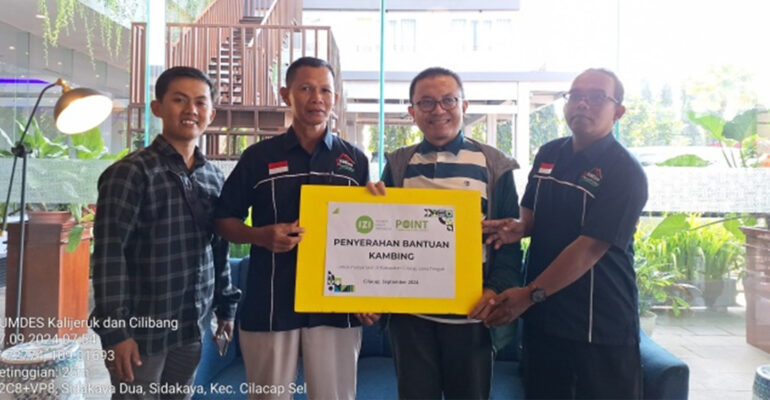IPB University and PLTU Adipala Cilacap Develop Biocofireing, IZI Donates Goats, Supports Sustainable Energy Program

In order to support the transition to clean and environmentally friendly energy, IPB University cooperates with PLN Group through the Biocofiring program, an innovative initiative that utilises biomass as an alternative to coal. This program is intended for Adipala Cilacap PLTU and involves the use of gammal and kaliandra plants that are planted on community-owned land with a people’s forest scheme.
This Biocofiring program focuses on replacing part of the coal with biomass produced from the branches of gamal and kaliandra trees. In addition, gamal leaves can be used as animal feed, while livestock manure is processed into compost to increase soil fertility. In this scheme, the local community has the opportunity to sell gamal branches to PLN, which will later be used as fuel at the Adipala Cilacap PLTU.
To support this program, Social Forestry Expert at Surfactant and Bioenergy Research Centre (SBRC) IPB University, Dr Soni Trison, collaborated with the Indonesian Zakat Initiative (IZI) through the ‘IZI Point Bakti Permai Bogor’ program. In this cooperation, IZI donated goats worth Rp30 million which was distributed to three Village-Owned Enterprises (BUMDes) at the biocofiring pilot project location.
According to Dr Soni who is also the Chairman of the Forest Management Department of IPB University, this goat livestock is expected to be able to support the biocofireing cycle. Goat manure will be processed into compost and the leaves will be used as animal feed.
“This collaboration is an important step involving various parties, including PLN Group, IPB University, local communities, and philanthropic institutions such as IZI. With this joint support, we hope that the biocofiring program will not only support cleaner energy production, but also improve the welfare of the community through the integration of agriculture and livestock,” said Dr Soni Trison.
This program is expected to be an example of a successful model in the implementation of sustainable energy in Indonesia, namely in addition to producing more environmentally friendly energy, it also has a positive impact on the economy of the surrounding community. (*/Rz) (IAAS/IAN)



